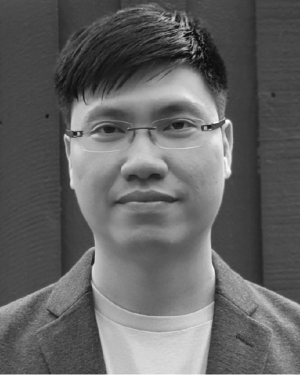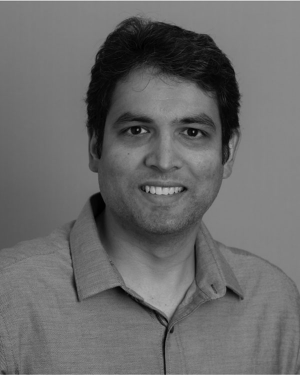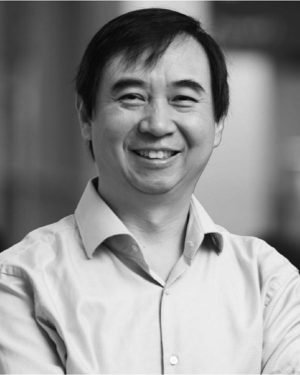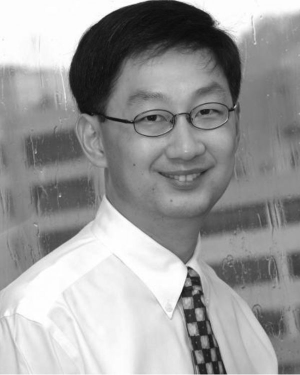Abstract:
Operational researchers and decision modelers have aspired to optimization technologies with a self-adaptive mechanism to cope with new problem formulations. Self-adaptiv...Show MoreMetadata
Abstract:
Operational researchers and decision modelers have aspired to optimization technologies with a self-adaptive mechanism to cope with new problem formulations. Self-adaptive mechanisms not only free users from low-level and complex development tasks to enhance optimization efficiency but also allow them to focus on addressing high-level real-world operational requirements. In recent years, there has been a growing interest in applying machine learning and artificial intelligence techniques to improve self-adaptive mechanisms. However, learning to optimize hard combinatorial optimization problems remains a challenging task. This article proposes a new genetic programming approach to evolve efficient variable selectors to enhance the search mechanism in constraint programming. Starting with a set of training instances for a specific combinatorial optimization problem, the proposed approach evaluates variable selectors and evolves them to be more efficient over a number of generations. The novelties of our proposed approach are threefold: 1) a new representation of variable selectors; 2) a new mechanism for fitness evaluations; and 3) a preselection technique. We examine performance of the proposed approach on different job-shop scheduling problems, and the results show that variable selectors can be evolved efficiently. In particular, there are substantial reductions in the computational effort required for the search component of the constraint solver as well as increased chances of finding the optimal solutions. Further analyses also confirm the efficacy of our approach in respect to scalability, generalization, and interpretability of the evolved variable selectors.
Published in: IEEE Transactions on Evolutionary Computation ( Volume: 25, Issue: 3, June 2021)
Funding Agency:

Centre for Data Analytics and Cognition, La Trobe University, Melbourne, VIC, Australia
Su Nguyen (Member, IEEE) received the Ph.D. degree in artificial intelligence and data analytics from the Victoria University of Wellington, Wellington, New Zealand, in 2013.
He is a Senior Research Fellow and an Algorithm Lead with CDAC, La Trobe University, Melbourne, VIC, Australia. His expertise includes evolutionary computation, simulation optimization, automated algorithm design, interfaces of AI/OR, and their applic...Show More
Su Nguyen (Member, IEEE) received the Ph.D. degree in artificial intelligence and data analytics from the Victoria University of Wellington, Wellington, New Zealand, in 2013.
He is a Senior Research Fellow and an Algorithm Lead with CDAC, La Trobe University, Melbourne, VIC, Australia. His expertise includes evolutionary computation, simulation optimization, automated algorithm design, interfaces of AI/OR, and their applic...View more

School of Information Technology, Deakin University, Melbourne, VIC, Australia
Dhananjay Thiruvady received the Ph.D. degree in optimization from Monash University, Melbourne, VIC, Australia, in 2012.
He is a Senior Lecturer and the Director of Industry Projects with the School of IT, Deakin University, Melbourne. His expertise is in developing methods derived from artificial intelligence (constraint programming, nature-based metaheuristics, Bayesian networks) and mathematical programming. He has pub...Show More
Dhananjay Thiruvady received the Ph.D. degree in optimization from Monash University, Melbourne, VIC, Australia, in 2012.
He is a Senior Lecturer and the Director of Industry Projects with the School of IT, Deakin University, Melbourne. His expertise is in developing methods derived from artificial intelligence (constraint programming, nature-based metaheuristics, Bayesian networks) and mathematical programming. He has pub...View more

School of Engineering and Computer Science, Victoria University of Wellington, Wellington, New Zealand
Mengjie Zhang (Fellow, IEEE) received the B.E. and M.E. degrees from the Artificial Intelligence Research Centre, Agricultural University of Hebei, Baoding, China, in 1989 and 1992, respectively, and the Ph.D. degree in computer science from RMIT University, Melbourne, VIC, Australia, in 2000.
He is currently a Professor of Computer Science, the Head of the Evolutionary Computation Research Group, and the Associate Dean (R...Show More
Mengjie Zhang (Fellow, IEEE) received the B.E. and M.E. degrees from the Artificial Intelligence Research Centre, Agricultural University of Hebei, Baoding, China, in 1989 and 1992, respectively, and the Ph.D. degree in computer science from RMIT University, Melbourne, VIC, Australia, in 2000.
He is currently a Professor of Computer Science, the Head of the Evolutionary Computation Research Group, and the Associate Dean (R...View more

Department of Computing, Hong Kong Polytechnic University, Hong Kong
Kay Chen Tan (Fellow, IEEE) received the B.E. degree with first class honors and Ph.D. degree from the University of Glasgow in 1994 and 1997, respectively.
He is currently a Chair Professor of Computational Intelligence with the Department of Computing, Hong Kong Polytechnic University, Hong Kong. He has been an Honorary Professor with the University of Nottingham, Nottingham, U.K., since 2020. He has coauthored seven boo...Show More
Kay Chen Tan (Fellow, IEEE) received the B.E. degree with first class honors and Ph.D. degree from the University of Glasgow in 1994 and 1997, respectively.
He is currently a Chair Professor of Computational Intelligence with the Department of Computing, Hong Kong Polytechnic University, Hong Kong. He has been an Honorary Professor with the University of Nottingham, Nottingham, U.K., since 2020. He has coauthored seven boo...View more

Centre for Data Analytics and Cognition, La Trobe University, Melbourne, VIC, Australia
Su Nguyen (Member, IEEE) received the Ph.D. degree in artificial intelligence and data analytics from the Victoria University of Wellington, Wellington, New Zealand, in 2013.
He is a Senior Research Fellow and an Algorithm Lead with CDAC, La Trobe University, Melbourne, VIC, Australia. His expertise includes evolutionary computation, simulation optimization, automated algorithm design, interfaces of AI/OR, and their applications in logistics, energy, and transportation. He has more than 70 publications in top EC/OR peer-reviewed journals and conferences. His current research focuses on novel people-centric artificial intelligence to solve dynamic and uncertain planning tasks by combining the creativity of evolutionary computation and power of advanced machine-learning algorithms.
Su Nguyen (Member, IEEE) received the Ph.D. degree in artificial intelligence and data analytics from the Victoria University of Wellington, Wellington, New Zealand, in 2013.
He is a Senior Research Fellow and an Algorithm Lead with CDAC, La Trobe University, Melbourne, VIC, Australia. His expertise includes evolutionary computation, simulation optimization, automated algorithm design, interfaces of AI/OR, and their applications in logistics, energy, and transportation. He has more than 70 publications in top EC/OR peer-reviewed journals and conferences. His current research focuses on novel people-centric artificial intelligence to solve dynamic and uncertain planning tasks by combining the creativity of evolutionary computation and power of advanced machine-learning algorithms.View more

School of Information Technology, Deakin University, Melbourne, VIC, Australia
Dhananjay Thiruvady received the Ph.D. degree in optimization from Monash University, Melbourne, VIC, Australia, in 2012.
He is a Senior Lecturer and the Director of Industry Projects with the School of IT, Deakin University, Melbourne. His expertise is in developing methods derived from artificial intelligence (constraint programming, nature-based metaheuristics, Bayesian networks) and mathematical programming. He has published over 40 journal and conference papers in operations research and artificial intelligence. He has worked problems originating in the mining industry, scheduling, and biosecurity.
Dhananjay Thiruvady received the Ph.D. degree in optimization from Monash University, Melbourne, VIC, Australia, in 2012.
He is a Senior Lecturer and the Director of Industry Projects with the School of IT, Deakin University, Melbourne. His expertise is in developing methods derived from artificial intelligence (constraint programming, nature-based metaheuristics, Bayesian networks) and mathematical programming. He has published over 40 journal and conference papers in operations research and artificial intelligence. He has worked problems originating in the mining industry, scheduling, and biosecurity.View more

School of Engineering and Computer Science, Victoria University of Wellington, Wellington, New Zealand
Mengjie Zhang (Fellow, IEEE) received the B.E. and M.E. degrees from the Artificial Intelligence Research Centre, Agricultural University of Hebei, Baoding, China, in 1989 and 1992, respectively, and the Ph.D. degree in computer science from RMIT University, Melbourne, VIC, Australia, in 2000.
He is currently a Professor of Computer Science, the Head of the Evolutionary Computation Research Group, and the Associate Dean (Research and Innovation) with the Faculty of Engineering, Victoria University of Wellington, Wellington, New Zealand. He has published over 500 research papers in refereed international journals and conferences. His current research interests include evolutionary computation, particularly genetic programming, particle swarm optimization, and learning classifier systems with application areas of image analysis, multiobjective optimization, feature selection and reduction, job-shop scheduling, and transfer learning.
Prof. Zhang was the Chair of the IEEE CIS Intelligent Systems and Applications Technical Committee, the IEEE CIS Emergent Technologies Technical Committee, and the Evolutionary Computation Technical Committee, and a member of the IEEE CIS Award Committee. He is a Vice-Chair of the Task Force on Evolutionary Computer Vision and Image Processing and the Founding Chair of the IEEE Computational Intelligence Chapter in New Zealand. He is also a Committee Member of the IEEE NZ Central Section. He is a fellow of the Royal Society of New Zealand and an IEEE Distinguished Lecturer.
Mengjie Zhang (Fellow, IEEE) received the B.E. and M.E. degrees from the Artificial Intelligence Research Centre, Agricultural University of Hebei, Baoding, China, in 1989 and 1992, respectively, and the Ph.D. degree in computer science from RMIT University, Melbourne, VIC, Australia, in 2000.
He is currently a Professor of Computer Science, the Head of the Evolutionary Computation Research Group, and the Associate Dean (Research and Innovation) with the Faculty of Engineering, Victoria University of Wellington, Wellington, New Zealand. He has published over 500 research papers in refereed international journals and conferences. His current research interests include evolutionary computation, particularly genetic programming, particle swarm optimization, and learning classifier systems with application areas of image analysis, multiobjective optimization, feature selection and reduction, job-shop scheduling, and transfer learning.
Prof. Zhang was the Chair of the IEEE CIS Intelligent Systems and Applications Technical Committee, the IEEE CIS Emergent Technologies Technical Committee, and the Evolutionary Computation Technical Committee, and a member of the IEEE CIS Award Committee. He is a Vice-Chair of the Task Force on Evolutionary Computer Vision and Image Processing and the Founding Chair of the IEEE Computational Intelligence Chapter in New Zealand. He is also a Committee Member of the IEEE NZ Central Section. He is a fellow of the Royal Society of New Zealand and an IEEE Distinguished Lecturer.View more

Department of Computing, Hong Kong Polytechnic University, Hong Kong
Kay Chen Tan (Fellow, IEEE) received the B.E. degree with first class honors and Ph.D. degree from the University of Glasgow in 1994 and 1997, respectively.
He is currently a Chair Professor of Computational Intelligence with the Department of Computing, Hong Kong Polytechnic University, Hong Kong. He has been an Honorary Professor with the University of Nottingham, Nottingham, U.K., since 2020. He has coauthored seven books and published over 200 peer-reviewed journal articles. He holds one U.S. patent on surface defect detection, and another one is pending approval.
Prof. Tan is currently the Vice-President (Publications) of IEEE Computational Intelligence Society, USA. He has served as the Editor-in-Chief of the IEEE Transactions on Evolutionary Computation from 2015 to 2020 and the IEEE Computational Intelligence Magazine from 2010 to 2013. He is also the Chief Co-Editor of Springer Book Series on Machine Learning: Foundations, Methodologies, and Applications launched in 2020. He currently serves as an Associate Editor of various international journals, such as the IEEE Transactions on Artificial Intelligence, the IEEE Transactions on Cybernetics, and the IEEE Transactions on Games. He has been an IEEE Distinguished Lecturer Program Speaker since 2012.
Kay Chen Tan (Fellow, IEEE) received the B.E. degree with first class honors and Ph.D. degree from the University of Glasgow in 1994 and 1997, respectively.
He is currently a Chair Professor of Computational Intelligence with the Department of Computing, Hong Kong Polytechnic University, Hong Kong. He has been an Honorary Professor with the University of Nottingham, Nottingham, U.K., since 2020. He has coauthored seven books and published over 200 peer-reviewed journal articles. He holds one U.S. patent on surface defect detection, and another one is pending approval.
Prof. Tan is currently the Vice-President (Publications) of IEEE Computational Intelligence Society, USA. He has served as the Editor-in-Chief of the IEEE Transactions on Evolutionary Computation from 2015 to 2020 and the IEEE Computational Intelligence Magazine from 2010 to 2013. He is also the Chief Co-Editor of Springer Book Series on Machine Learning: Foundations, Methodologies, and Applications launched in 2020. He currently serves as an Associate Editor of various international journals, such as the IEEE Transactions on Artificial Intelligence, the IEEE Transactions on Cybernetics, and the IEEE Transactions on Games. He has been an IEEE Distinguished Lecturer Program Speaker since 2012.View more


